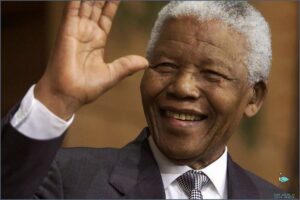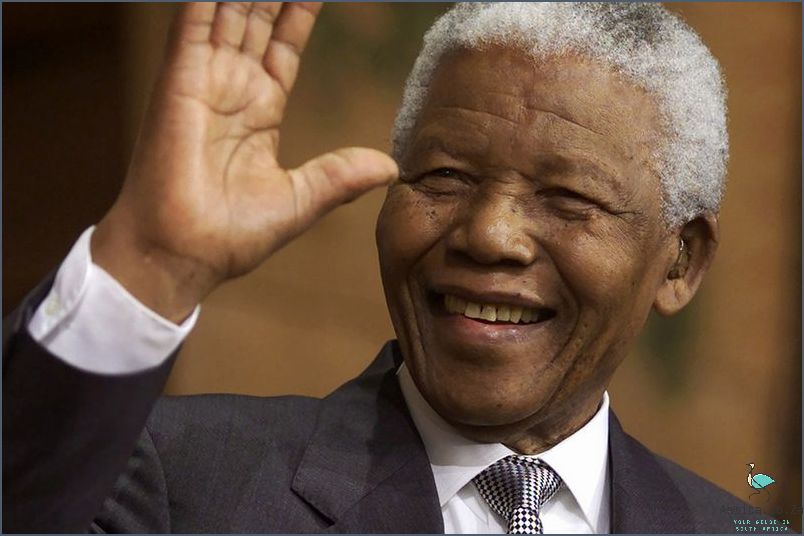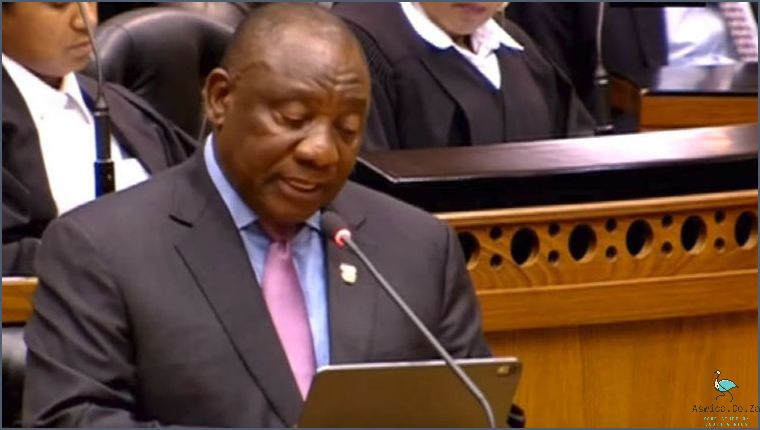
The South African leader who contributed the most towards building democracy in the country was Nelson Mandela. Mandela was born in 1918 in South Africa and was imprisoned for 27 years for his involvement in the fight against white minority rule. After his release in 1990, Mandela became the first black president of South Africa. He played a critical role in building a democratic system in South Africa and helped to bring about social and economic improvements for the majority of the population. Mandela’s legacy is still being felt in the country today.
Contents
- 1 South African Leader Who Contributed In Building Democracy
- 2 Nelson Mandela: His life and his contributions to the struggle for democracy in South Africa
- 3 Oliver Tambo: His role in the African National Congress (ANC) and its fight for freedom
- 4 Thabo Mbeki: His leadership in the ANC and the transition to democracy in South Africa
- 5 Conclusion
South African Leader Who Contributed In Building Democracy
Nelson Mandela is one of the most prominent South African leaders who contributed in building democracy within the country. He was an anti-apartheid revolutionary and leader of the African National Congress. Mandela was a key figure in the transition from white-minority rule to a democratic majority rule in South Africa. He was awarded the Nobel Peace Prize in 1993 for his contributions to the peace process and is widely regarded as the father of South African democracy. Mandela was a strong advocate of racial equality and civil rights and his legacy of peaceful resistance against racial oppression is still praised and remembered today. He was an inspiring leader and his fight for democracy and equality in South Africa is an example for many around the world.
Nelson Mandela: His life and his contributions to the struggle for democracy in South Africa
Nelson Mandela is one of the most renowned figures in the struggle for democracy in South Africa. His life and legacy have been an inspiration to millions of people around the world. From his early years as a lawyer and political activist to his eventual rise to the presidency of South Africa, Mandela has played an integral role in the democratization of his homeland.
Born in 1918, Mandela grew up in a rural village in South Africa. He received his education in the country’s universities, graduating with a law degree in 1942. After his graduation, Mandela joined the African National Congress and quickly rose to prominence as one of its leading figures. As a lawyer, Mandela was a passionate advocate for civil rights and racial equality. He was also a key figure in the struggle against the oppressive apartheid regime that had been imposed on South Africa’s black population.
In 1964, Mandela was arrested and sentenced to life in prison for his anti-apartheid activities. He spent 27 years in prison, but even while he was behind bars, Mandela continued to be an influential figure in the fight against racial discrimination in South Africa. Through his writings and speeches, he encouraged his fellow citizens to strive for equality and justice.

After his release from prison in 1990, Mandela emerged as a powerful symbol of the struggle for democracy in South Africa. He entered into negotiations with the then-ruling National Party, and in 1994, South Africa held its first democratic elections, with Mandela as its president.
Throughout his life, Mandela has been a powerful voice for peace and reconciliation. He has urged his fellow South Africans to find common ground and to work together to build a better nation. His legacy of courage and determination has inspired countless people around the world, and his tireless commitment to the cause of democracy in South Africa will be remembered for generations to come.
Oliver Tambo: His role in the African National Congress (ANC) and its fight for freedom
Oliver Tambo was a South African leader who contributed significantly to the building of democracy in his country. He was a key figure in the African National Congress (ANC) and led the organization for nearly three decades. Tambo was born in 1917, in the Eastern Cape province of South Africa. He studied at the University of Fort Hare, where he was an active member of the ANC and its youth wing, the African National Congress Youth League.
Tambo was instrumental in the ANC’s growth as a mass organization and in the organization of its non-violent campaigns against apartheid. He was elected to succeed Albert Luthuli as president-general of the ANC in 1967, and in 1969 he was the main architect of the ANC’s Strategy and Tactics document. This document articulated the ANC’s commitment to a non-racial, democratic South Africa and defined the organization’s tactics in the struggle against apartheid.
Tambo was also a key figure in the ANC’s international outreach. He traveled extensively, meeting with world leaders and activists, and securing international support for the struggle against apartheid. He was also the main facilitator of the ANC’s armed struggle, which was launched in 1961. In addition, Tambo was a major proponent of negotiations with the South African government, advocating for peaceful and negotiated solutions to the conflict.
Tambo’s legacy is one of courage and commitment to the struggle for freedom and justice in South Africa. He was an inspirational leader and his legacy continues to inspire people around the world. His life and work will continue to be remembered and celebrated by those who fight for a just and equitable world.

Thabo Mbeki: His leadership in the ANC and the transition to democracy in South Africa
Thabo Mbeki is one of the most revered leaders in South Africa and beyond, due to his immense contribution to the transition from apartheid to democracy. He served as the President of South Africa from 1999 to 2008, and as the Deputy President of the African National Congress (ANC) from 1994 to 1997. His leadership during this period was instrumental in guiding South Africa through the process of reconciliation and democratization.
Mbeki was born in 1942 and raised in Johannesburg, South Africa. As a young man, he was deeply involved in the anti-apartheid movement, taking part in numerous protests and rallies against the oppressive system. He was also a key figure in the ANC’s negotiations with the apartheid government, which ultimately led to the implementation of a new democratic constitution in 1994.
After the ANC took power, Mbeki was appointed Deputy President and was tasked with leading the country’s transition to democracy. He focused on economic reform, including privatizing state-owned enterprises and introducing several measures to reduce poverty. He also oversaw the implementation of affirmative action policies, which sought to address the racial disparities that had been caused by apartheid.
Mbeki’s leadership during this period was marked by a commitment to reconciliation and cooperation between different racial and ethnic groups. He was a staunch advocate for the rule of law, and worked to ensure that the new government respected the rights of all citizens. He was also instrumental in helping to secure the release of Nelson Mandela, who had been imprisoned for 27 years under the apartheid government.
Mbeki’s legacy lives on today in South Africa, where his leadership is remembered fondly by many. He was an advocate for democracy and human rights, and his dedication to the cause of reconciliation and progress led South Africa to become a more stable, prosperous and equitable society. Thabo Mbeki will always be remembered as one of South Africa’s greatest leaders, and his work in transition to democracy will continue to be admired for generations to come.
Conclusion
The South African leader who contributed most in building democracy in South Africa was Nelson Mandela. He was imprisoned for 27 years, but he never gave up hope of one day leading his country into a democratic society. Mandela’s dedication and perseverance paid off when he was elected president of South Africa in 1994. He oversaw the transition from apartheid to a democracy, and he served as the country’s president until 1999. Mandela’s influence on South African democracy remains undiminished, and he is universally respected for his efforts.




